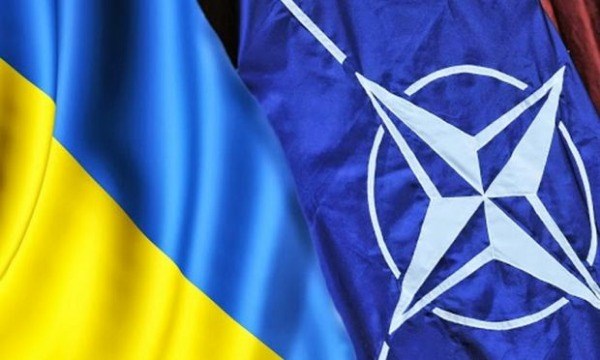Ukraine and NATO discuss introduction of ‘painful sanctions’ against Russia
During the meeting of the Ukraine-NATO Council, the parties discussed the introduction of a "painful" package of sanctions against Russia and de-escalation of the situation around Ukraine, said Ukrainian Deputy Prime Minister for European and Euro-Atlantic integration Olga Stefanishyna on Twitter.
Moscow "threatens us with a new war," but does not make efforts for a peaceful settlement within the framework of the "Minsk" and "Normandy formats," Stefanishyna said. The Deputy Prime Minister noted that the task is to reduce tensions on the border of Russia and Ukraine. Stefanishyna said that, in the event of "further aggression" by Moscow, the price should become "extremely high."
"The Ukraine-NATO Commission stressed that a comprehensive deterrence package, including painful sanctions, should be on the table," she added.
In mid-December, Moscow handed over to Washington proposed agreements on mutual security guarantees. Among them are demands not to accept the countries of the former USSR into NATO and to stop military activities in the territory of Ukraine.
The Russian Foreign Ministry in early January assured that Russia does not plan to invade Ukraine, and there can be no such plans. According to Russian Deputy Foreign Minister Sergei Ryabkov, Kyiv should not be afraid of escalation from Russia . At the same time, Deputy Foreign Minister Alexander Grushko said that Western countries should take Moscow's proposals seriously or prepare for a "military-technical alternative." Russian President Vladimir Putin also warned that in case of refusal, the answer could be "very different", noting that the decision will be made after consultations with military experts.
By mid-December, about 100,000 Russian troops were deployed near the Ukrainian border, including about 50 highly mobile battalion tactical groups, the Financial Times writes, citing sources familiar with Western intelligence data.
According to the estimates, that the number of troops could rise to 175,000 by the end of January, when the ground will freeze and be more suitable for tank movement in the event of a ground invasion.
Two long-time Putin's confidants told the FT that the most likely casus belli would resemble the one that led to the start of the war with Georgia in August 2008. Russia then responded to Tbilisi's attempt to gain control over South Ossetia by sending troops into Georgian territory with air and artillery support, using a blockade from the sea and cyberattacks.
Moscow will present the conflict with Ukraine as an attempt to protect the Russian-speaking population in the Donbas from what it will call "Ukrainian aggression", FT sources said.
The news background for such a development of events is already being prepared. On January 3, the People's Militia of the self-proclaimed Luhansk People’s Republic announced that on December 27, Ukrainian "nationalist militants" seized a school in the village of Valuske in the Donbas, and are now setting up headquarters there: cars with armed men and artillery reconnaissance equipment are arriving.
The LPR People's Militia said that the forces of the Ukrainian army are moving to the captured school.
